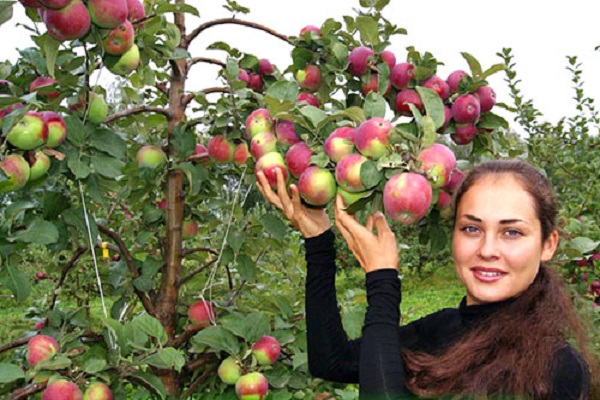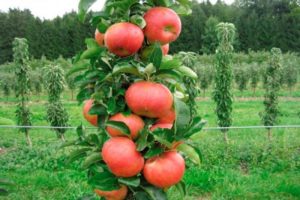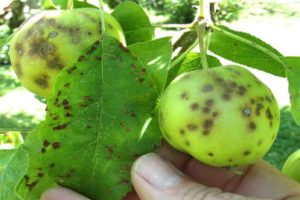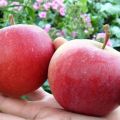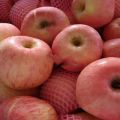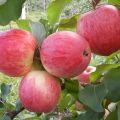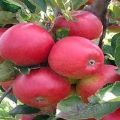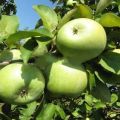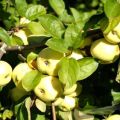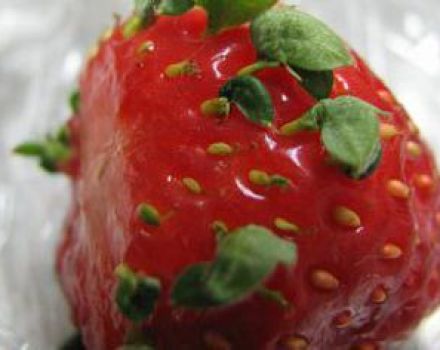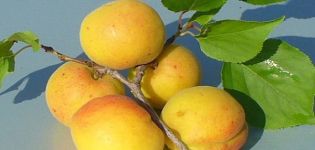Description and characteristics, advantages and disadvantages of Orlik apple trees, cultivation features
A worthy variety of fruit and berry crops is the Orlik variety. The tree bears bountiful harvests of juicy, sweet apples. Regular fruiting is one of the main advantages of the species. Fruit is a storehouse of nutrients and vitamins. The ability to tolerate low temperatures allows the plant to be cultivated everywhere. The apple tree Orlik has long been appreciated by many. For these reasons, the variety is in great demand among farms and private consumers.
Description of the Orlik apple tree
The history of the Orlik variety begins in 1959. The new variety was obtained thanks to selective experiments with Bessemyanka Michurinskaya and Macintosh. The name comes from the region of its creation - the Oryol region. The tree has a number of features:
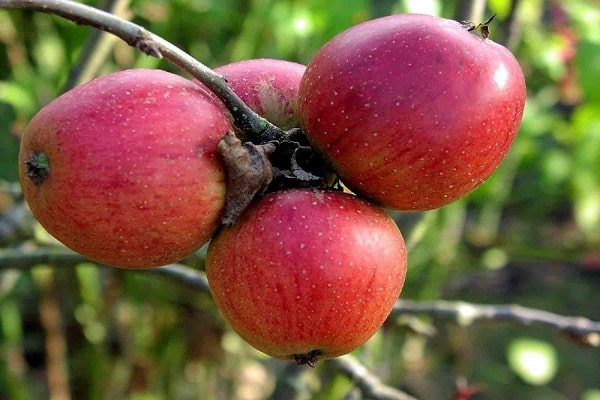
- The fruit ripens in winter.
- Frost resistance.
- Regular, bountiful harvests.
- The taste of aromatic apples is sweet.
- Resistance to fungal diseases.
The apple tree blooms in late spring. The inflorescences change color: the red tint is replaced by pale pink. In the first year of life, it is recommended to cut up to 80% of the flowers, which will improve the survival of the cutting. The variety is fast-growing. The first bountiful harvest will bring in 4 years after planting. One tree gives up to 45 kg of sweet apples.
The fruits are cone-shaped. The fruit is medium in size. Ripe yellow apples with a pink spot on the side. On a dense skin, a waxy coating is an additional protection against harmful bacteria and fungi. The apple pulp is juicy and sweet.
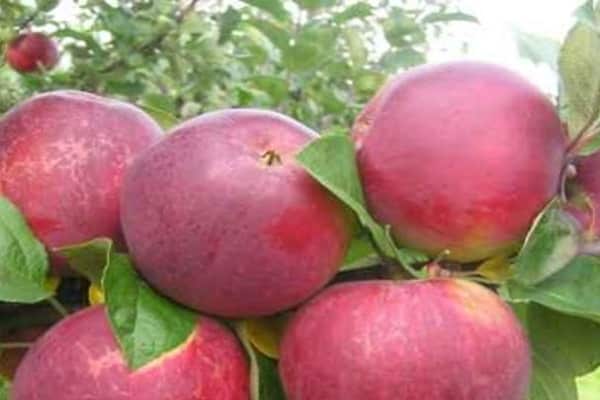
Variety characteristics
Orlik's characteristic features determine the landing algorithm, the necessary care procedures for him.
Height
The variety is considered medium-sized. The height of the trunk is up to 5 m. The bark of the tree is smooth. Due to its short stature, the landing does not take up much space.
Crown width
The crown of an adult apple tree is spherical. The diameter reaches 2 m. Branches with the ends raised upward extend horizontally from the main conductor. Round foliage of a dark green hue.
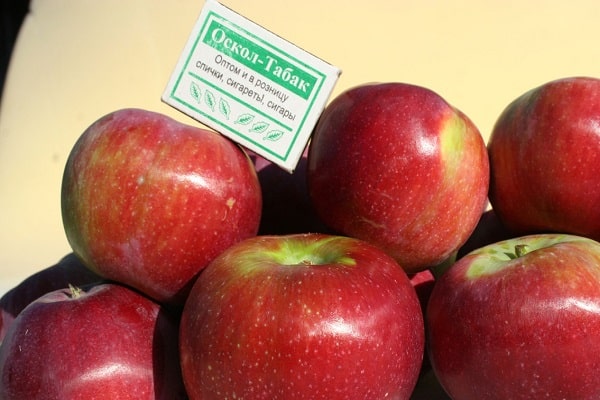
Winter hardiness
A distinctive feature of Orlik is the ability to withstand low temperatures. To protect the plant from sunburn, the soil near the tree is mulched.
Pollinating varieties
The Orlik variety is not capable of self-pollination. To obtain a harvest, he needs pollinator varieties:
- Bogatyr;
- Reneth;
- North Sinap;
- Moscow winter;
- Chernenko.
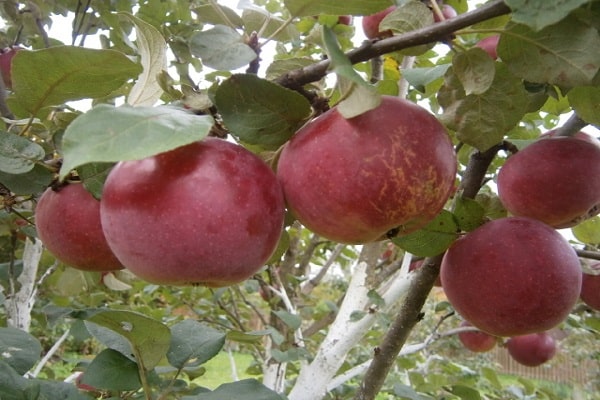
Self-fertility
The apple tree is self-fertile. Its fruiting does not depend on changes in climate. She pleases with a bountiful harvest annually. 100 kg are harvested from one adult apple tree. The weight of one fruit is 110-200 g.
Tasting assessment
The excellent taste of the variety is highly appreciated by gardeners. The apple pulp is sweet with a slightly noticeable sourness. One fruit contains useful trace elements, vitamins, sugar, pectin.
Orlik apples are used for different purposes:
- During a diet.
- To restore metabolism.
- In order to prevent atherosclerosis, heart attack.
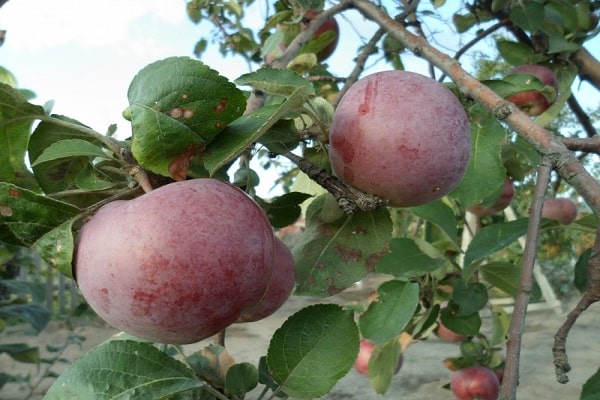
Apple tree advantages and disadvantages
The variety has a number of advantages, thanks to which the apple tree is in great demand in modern gardening:
- Regular, abundant fruiting.
- Resistant to severe frost.
- Sweet fruit taste.
- Immunity to plant diseases.
The specific features of the apple tree should be taken into account for proper tree care:
- Fully ripe fruits do not stay on the branches for a long time. They fall to the ground. Harvest on time.
- The variety has dormant seasons without fruiting. It is impossible to predict their regularity.
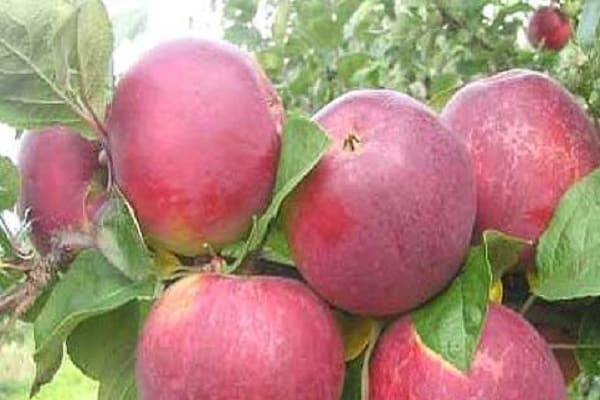
Landing nuances
Planting an apple tree is not difficult. For quality performance, you should follow the recommendations of experienced gardeners.
When is the best time to plant
The best time to plant a seedling is September or October. Before the onset of cold weather, the young tree will have time to adapt to the environment, strengthen the rhizome.
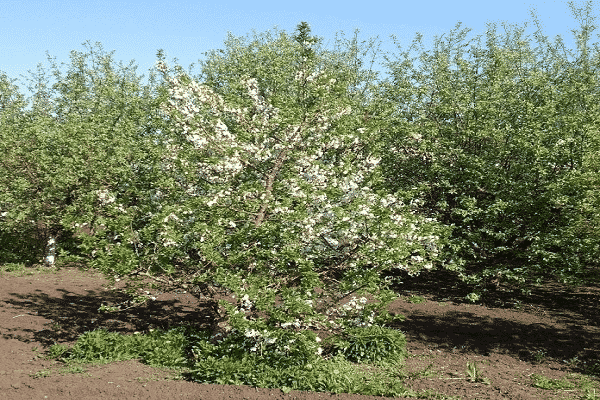
How to choose and prepare a place for an apple tree
The best option is landing on an elevated site. The location of groundwater should not be close to the roots of the plant. Excessive moisture can cause the seedling to rot.
The distance between the apple trees should be at least 2 m. The area for planting is cleaned of debris, rotten fruits, dry branches. A soil mixture is prepared from several components:
- clay;
- sand;
- peat;
- humus;
- compost.
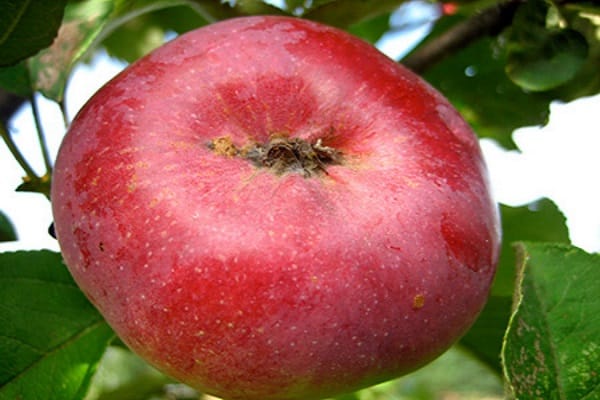
How to plant seedlings correctly
The stages of planting an Orlik seedling are simple to perform:
- Prepare the landing pit.
- Lower the apple stalk down. Spread the roots. Leave the root collar 7 cm above the ground. Sprinkle with a mixture of soil and fertilizers. Tamp the landing.
- Sprinkle with plenty of water.
For even growth of the tree, it is fixed with pegs, which are placed on both sides of the seedling.
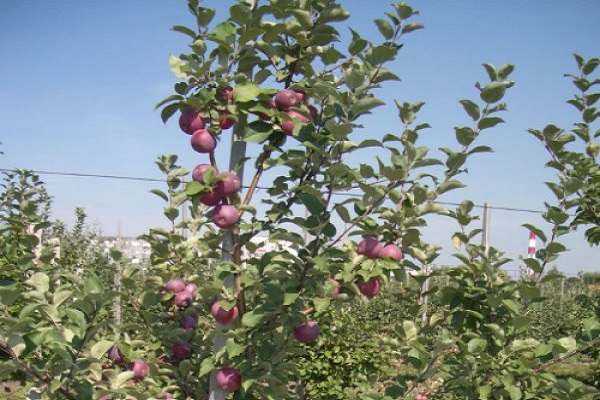
Care rules
Orlik variety is unpretentious to care. Mandatory procedures must be followed to maintain a healthy planting.
Watering the apple tree
Watering the apple tree should be regular. At least 5 buckets of water are consumed per adult tree. The frequency and amount of watering is adjusted depending on the climate. In severe drought, moistening is carried out more often.
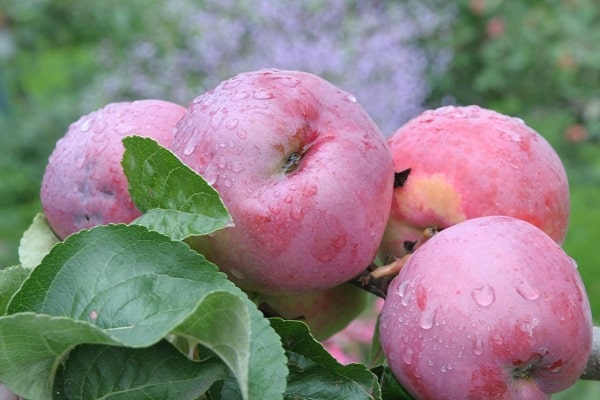
Fertilization
Fertilize Orlik apple trees a year after planting:
- In the spring, urea and ammonium nitrate are used as top dressing.
- During the digging near the tree, the soil is sprinkled with wood ash.
- Before the onset of cold weather, liquid mullein is mixed with superphosphates, ammonium nitrate is added. The mixture is poured over the planting.
Apple pruning
In the spring, sanitary cleaning of the Orlik apple tree is mandatory. Remove dry, old, damaged branches. Timely pruning helps to increase the yield.
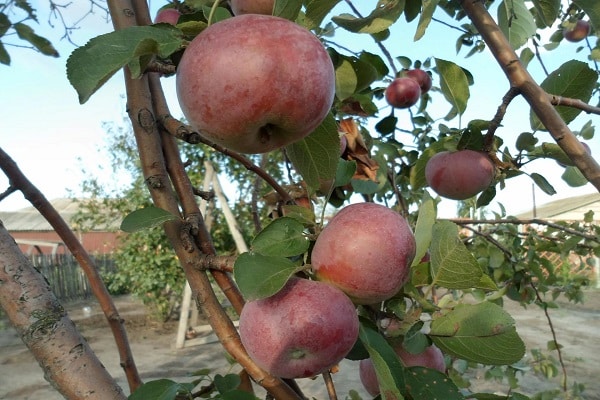
Disease prevention
Prevention allows you to prevent the defeat of the Orlik variety by fungal diseases, insect pests:
- In the spring, the apple tree is sprayed with Karbofos solution. This will kill aphids, red ticks.
- Powdery mildew, fruit rot, scab will be relieved by treatment with Bordeaux liquid.
- The trunks of the tree are regularly whitewashed with lime. It will keep the apple tree from lichen.
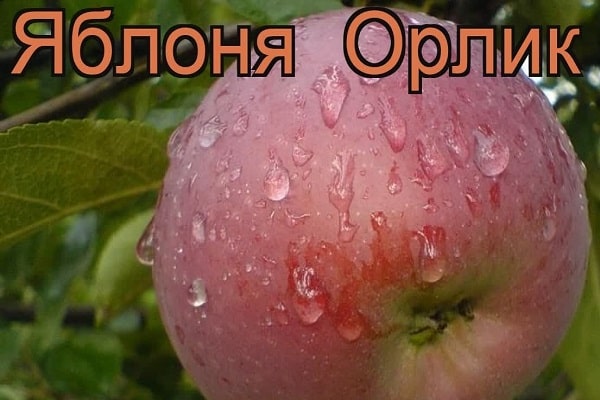
Variety subspecies
In modern gardening, there are several options for the forms of Orlik apple tree seedlings:
- Dwarf.
- Semi-dwarf.
Each of the subspecies has a number of advantages:
- Winter hardy.
- Compact.
- Fruiting with a bountiful harvest.
They use similar forms of trees to decorate city parks, small garden areas.
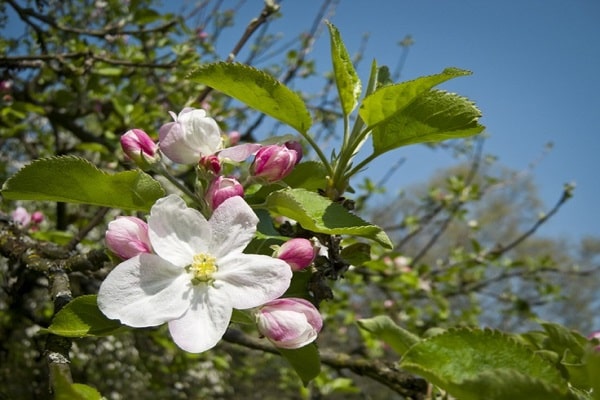
Features of cultivation in different regions of Russia
Due to the peculiarities of the apple variety, Orlik is cultivated in many regions of the country:
- Central District.
- Cities of the Central Black Earth Regions.
- Northwest Territory.
- Moscow region.
- The territory of the middle lane.
- Ural.
Despite the high level of winter hardiness, the Orlik variety is not recommended to be planted in Siberia. Prolonged periods of low temperatures will negatively affect the tree.
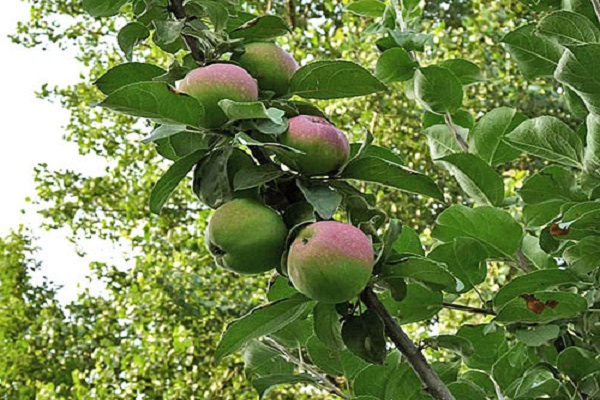
Harvesting and storage
Orlik apples are fully ripe by mid-September. It is important to pick ripe fruits in a timely manner. They do not hang long on the branches. Ripe fruits quickly fall to the ground. Fallen apples are not subject to long-term storage. They are immediately processed into compotes, preserves, jams, and preserves.
The plucked fruits are neatly laid out in wooden boxes. Sprinkle with sawdust for better storage. The best places for apples are a cellar, a refrigerator, an attic. The temperature in the place of their storage should not be higher than +5 degrees... A distinctive feature of the Orlik variety is the ability to long-term storage... Subject to the rules, apples will not lose their presentation and taste until spring.
Orlik is a popular fruit crop. It is widely zoned in many regions of the country. Due to the endurance of low temperatures, the apple tree takes root well in the northern regions. Gardeners appreciate the tree's ability to bear fruit regularly and abundantly. Healthy tasty apples become a highlight of any garden.
